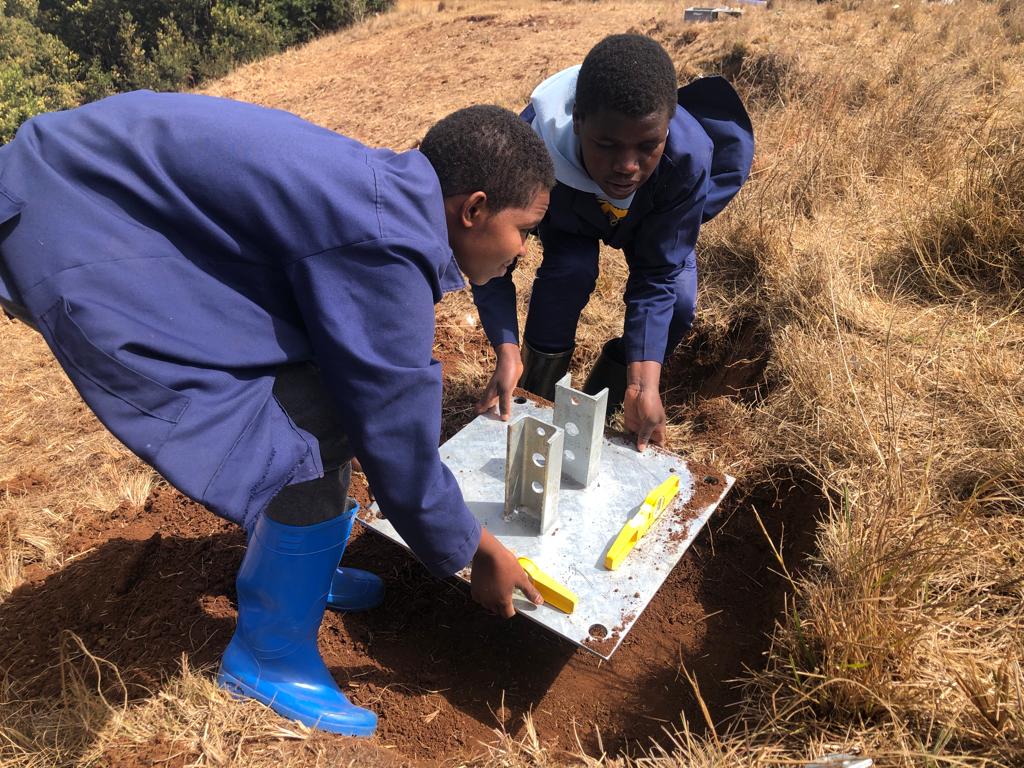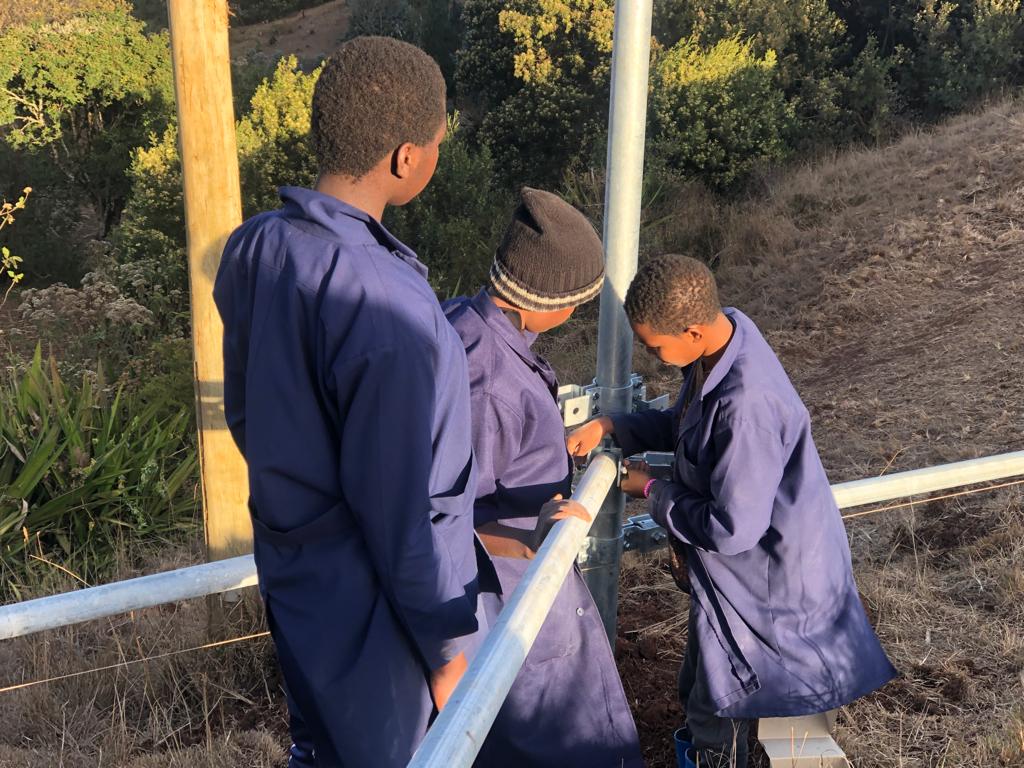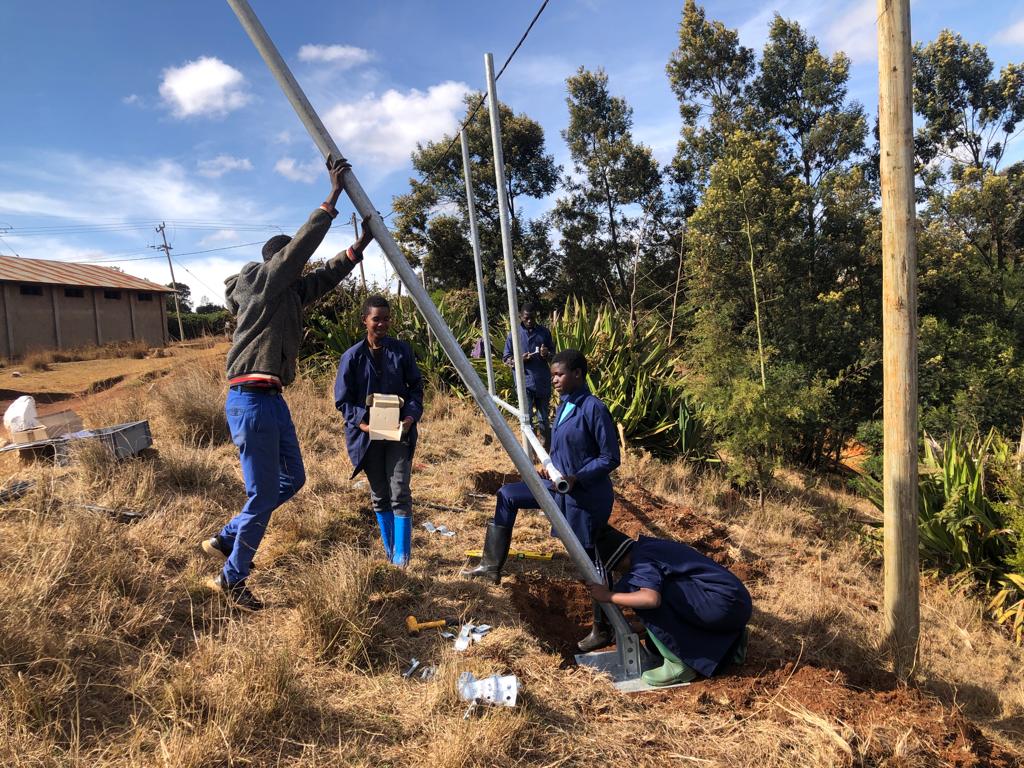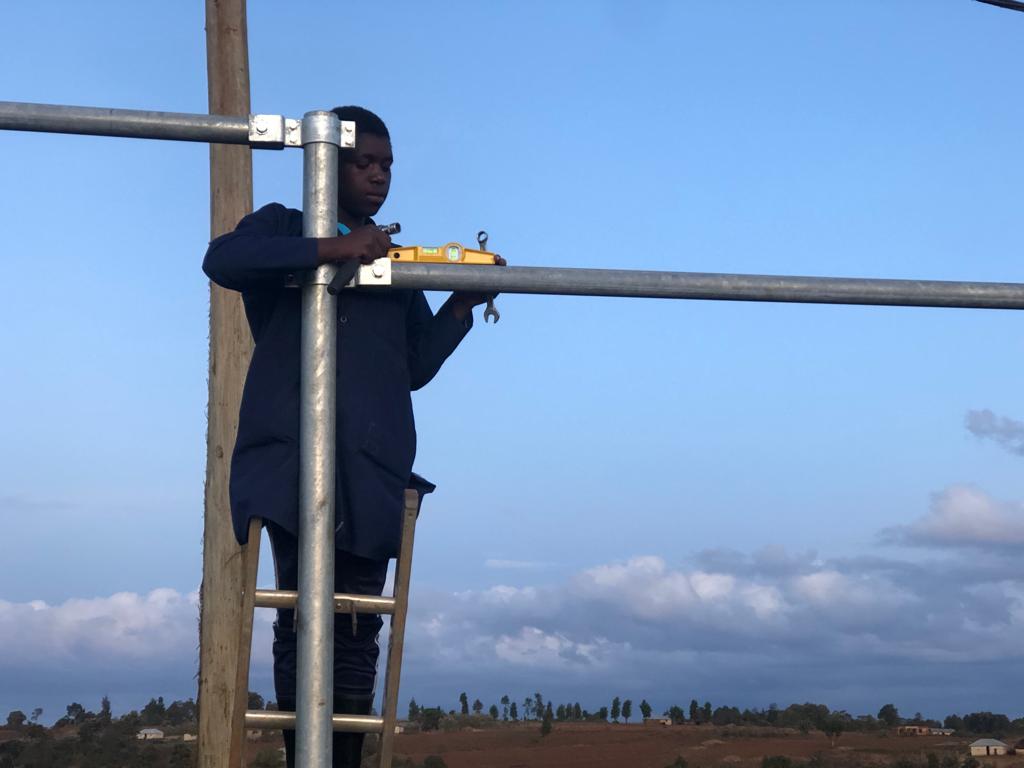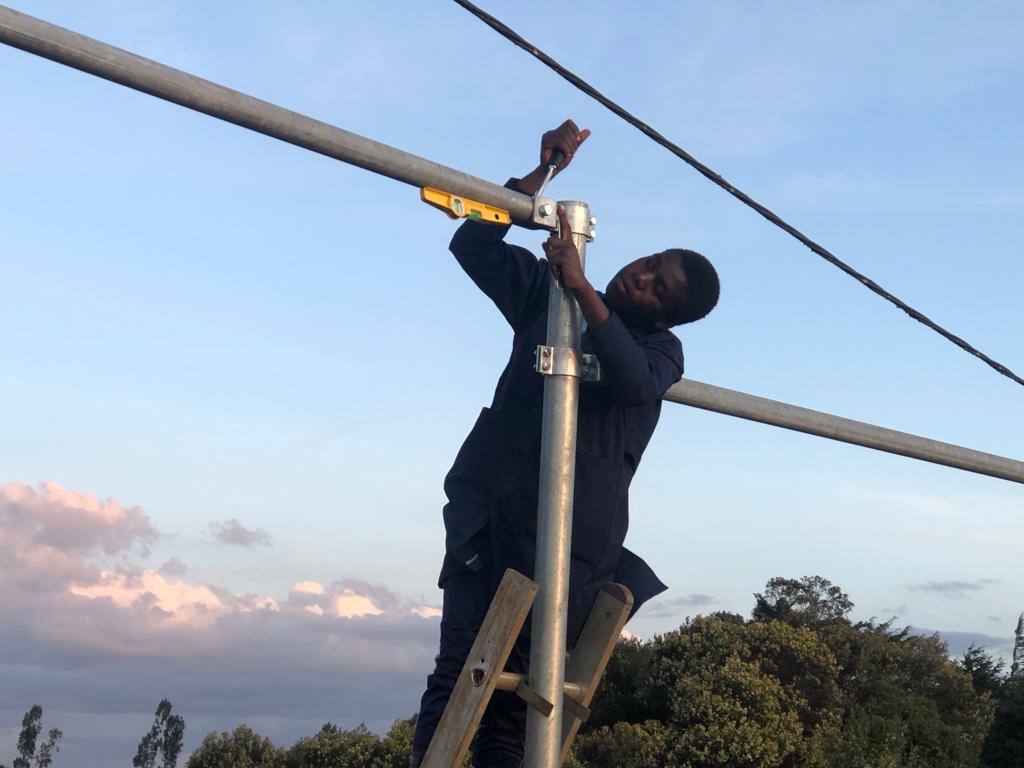Tanzania
Qameyu und Umagi u.a.
The project area is located in the Babati region/district south of the Manyara Salt Lake on a high plateau (approx. 2000 m to 2500 m altitude) of the African Ridge. It is about 80 km from Babati and about 300 km from Arusha/Kilimanjaro, where the international airport is located. About 25,000 people live in the project area with the cities of Qameyu, Umagi, Endow, Endabok, Gidn’gata and others.
Initial situation
None of the 14 schools in the district is connected to a public water supply. The families of the students live mainly from subsistence farming. School fees are paid in kind (corn, beans). The young people usually spend two hours fetching water for the school and thus miss classes. Water supply through wells is not possible in the Tanzanian highlands at an altitude of over 2,000 metres. Water from streams is also largely contaminated and is not sufficient for supply. But due to the frequent fog phases, the area is predestined for the use of fog collectors for water supply. The first fog collector, a large CloudFisher Pro, was installed in Tanzania as early as 2017 and has been reliably supplying water to the secondary school in Qameyu ever since.
There are two (shorter) rainy seasons in late autumn and spring with different yields. Unfortunately, there is no infrastructure in place to collect this water to bridge the dry periods. But there are often foggy periods in this high region, during which fog collectors can be used to collect water at some schools. In addition, it is constantly windy. These are all ideal conditions for a successful and effective CloudFisher installation.
There are neither ethnic tensions nor political problems, so that the project framework conditions can be described as very stable. Since the project is aimed exclusively at schools, the ownership structure has been clarified. In addition, we have reliable local partners in the school authorities/teachers and reach almost all families in the region through the children.
Target group
The Girls Secondary School is located in Madunga, and in the capital cities of Qameyu and Umagi there is a secondary school with about 300 to 350 students each. In addition, there are ten primary schools e.g. in Gidn’gata, Daraja la Mungo, Endabok, Qameyu, Gawal, Endow, Madunga, Endalah with an average of about 100 to 200 pupils per school as well as a vocational school and a hospital, which also needs water. Of the total of about 4,000 pupils, about half are girls and the other half boys. On average, there is one teacher for every 30 pupils.
The children in the primary schools are between 6 and 12 years old, in the secondary schools up to 18 years. With the Madunga Girls Secondary School, an all-girls school is also integrated into the project. The Joseph Darda Vocational Training Center is a vocational school whose students are between 18 and about 25 years old. All schools in this region are taken into account, so that neither envy nor resentment are to be expected. An estimated 25,000 people live in the region in a catchment area of approx. 100 square kilometres.
Measures
Together with its partners ped-world e.V. and Viva con Agua e.V., the WaterFoundation will ensure that 14 schools in Tanzania have a continuous water supply and sanitary facilities. In January 2019, the WaterFoundation already sent five secondary collectors of the CloudFisher Mini model worth 39,000 euros to the Babati region, for which HTI Gienger provided start-up financing.
However, a total of 14 CloudFishers are needed to approximately cover the water requirements of all schools. Thus, the Oswald Foundation has provided further funds to finance eight CloudFishers. In addition, the schools are supplied with rainwater collection systems by the German association ped-world. Our partner ped-world is building 23 cisterns with water filters for the collected rainwater, thus supplementing the water collection. The creation of 14 school gardens for the cultivation of fruit and vegetables is also part of the project in order to create opportunities for self-sufficiency and to ensure better nutrition. The use of dry toilets is also planned and 14 hand washing facilities will be built.
Peter Trautwein by order of the WaterFoundation and experts from ped-world will take care of the installation of the fog collectors, water tanks and filter systems on site. In order to secure the project in the long term, so-called WASH trainings on the correct handling of water supply and hygiene will be carried out with the local people. And the Hamburg-based “all-profit organisation”, as Viva con Agua calls itself, will provide a total of 563,000 euros as sponsor for the implementation of the project from 2019 to 2022.
In all schools there is a great willingness on the part of both teachers and pupils to support the project and to lend a hand. The soil is very fertile and therefore suitable for agriculture with appropriate irrigation.
Effects
The fog collector is an example of integrated water resource management, in which water is considered an integral resource for the ecosystem and at the same time a social and economic good. The project has the long-term goal of contributing to improving the living conditions and health of poor children and young people at 14 schools in Tanzania around the Qameyu plateau. Furthermore, young people are the best multiplier for change. They will share their knowledge about water as an important resource, around the topic WASH (Water, Sanitation, Hygiene) with their families.
In this way, we can provide targeted support to schools in the area of water supply and also make a contribution to improving the education of the pupils and to the use of water in the communities involved around the schools. Together with the Secondary School in Qameyu, which is already supplied, a total of 14 schools with over 4,000 students will benefit from the project.
This Video illustrates vividly the effects of our project:
https://youtu.be/ni0s0ixGKYE
Project planning and implementation
aqualonis, Peter Trautwein
Project partners and sponsors
Ped-world e.V.
Viva con Agua e.V.
Oswald Foundation
HTI Gienger
Costs
The total volume of the project amounts to over EUR 600,000.
